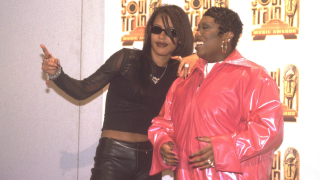The Black List is changing the Hollywood game. The script-database service dedicated to finding and promoting unknown writers has done what agents and film executives couldn’t: give diverse candidates a chance.
There seems to be some changes happening in Tinsel Town, as 2013 marked a phenomenal year for people of color on the big screen. From 12 Years a Slave and The Butler, to 42 and The Best Man Holiday, films featuring Black leads showed up and showed out in terms of both box office revenue and quality. It seems the window of opportunity opened for many of those who had been overlooked in the industry and many are taking on the task of keeping that window open.
Franklin Leonard is one of those people paving the way. A former development executive with ties to Overbrook Entertainment (Will Smith’s production company) and Universal Studios, he created The Black List in 2005 as a survey of the top unproduced scripts of the year. He polled film development executives to develop a list of scripts that were somehow left out. As the voter pool grew, over 225 Black List screenplays were made into feature films. Those films, including Slumdog Millionaire, The Pursuit of Happyness, and Django Unchained, have grossed over $16 billion in worldwide box office sales and been nominated for over 150 Academy Awards.
The Black List has not only made waves for unknown writers, but has catapulted writers of color into the spotlight with major support from giants such as Warner Brothers, TNT, TBS, and Disney. These companies partnered with Black List to specifically find and hire minority writers. These partnerships offer a chance for women and writers of color to increase their visibility by highlighting and handpicking the strongest candidates. Leonard says “I think what we’ve been able to do and the thing that has been the most beneficial to writers, particularly writers of color, is to make it about the work and not about who you know.”
Hollywood has long been a “Good Ol’ Boys” club, keeping new and diverse talent at the gates of acceptance. Overwhelmingly run by White males, the time honored advice for breaking into Hollywood as a writer was to move to L.A, take a low paying job and network until you got a break. For most, that’s just not feasible. “If you’re rich, you’re going to be much more able to pick up your life and take a crappy job to supplement your income; and unfortunately there is not that many people of color that have the ability to do that,” Leonard said.
Over the last nine years, the list has expanded into a service for anyone who feels they have what it takes to become a film or TV writer. For a fee, writers can submit their script for review on the members-only site. From there, subscribed executives and top filmmakers can view and vote on your script. The most recommended scripts make the list and gain additional exposure. While many script review or script reading services aim to present the same opportunities to its members, The Black List boasts partnerships that solidify the list as a must read for film executives. “The success of the films and writers that have been on the list shows that we are doing a good job of finding talent, says Leonard, “I created the list not to make money, but because I was trying to find some good writers.”













